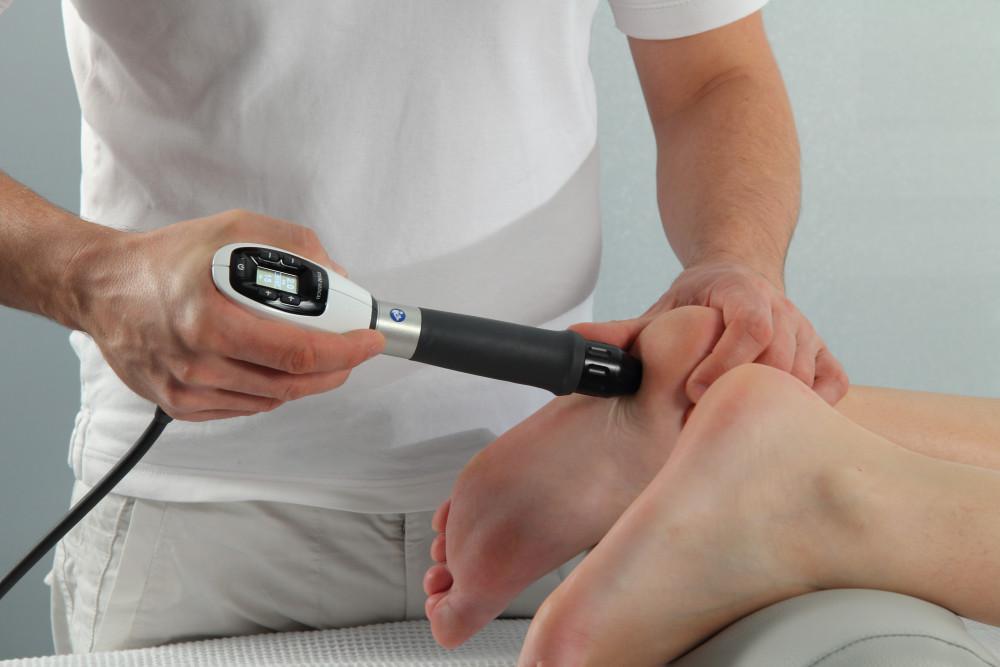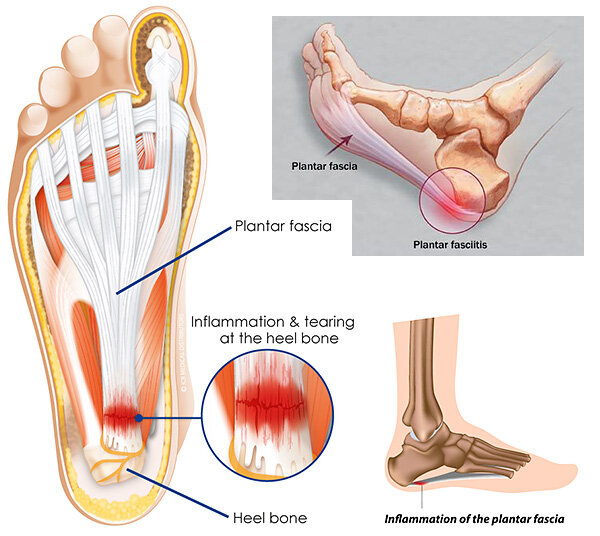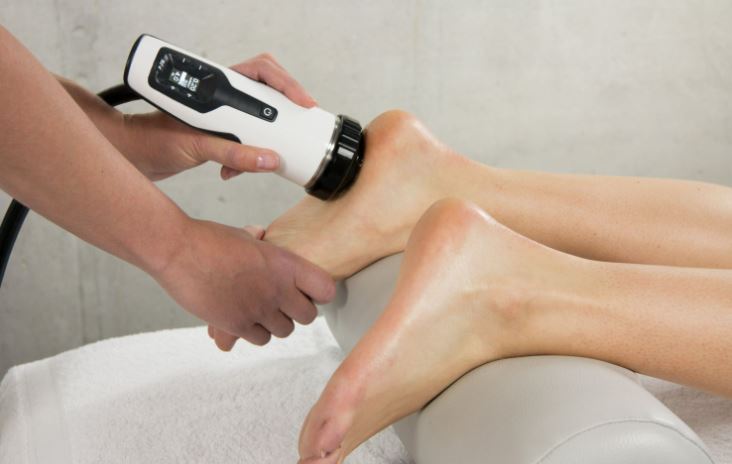
Plantar Fasciitis is the most prevalent cause of heel pain in the United States with over 2 million people treated and 10% of people affected by this condition.1,2 The sharp, stabbing pain is uncomfortable at best, and debilitating over time. Due to its unpleasant nature and long-lasting effects when left untreated – most people are quick to turn to the professionals for quick resolution. “Quick” being the keyword. When you are in pain, you want to feel better as quickly as possible. Podiatrists have turned to the clinically proven non-invasive shock wave therapy to get patients out of pain fast, while accelerating the healing process for long-term relief.
Plantar Fasciitis – What Is It?

There is a fan shaped tissue in the bottom of your foot called plantar fascia that can inflame – known as plantar fasciitis. The thick belt of connective tissue connects your heel bone to your toes and helps maintain the shape of the arch of your foot. So, when it becomes strained due to plantar fasciitis, it leads to a sharp, stabbing pain that is worse first thing in the morning when you take your first steps. Since the condition tends to ease as the day goes on, many people ignore the pain. However, the longer that this condition goes untreated, the more likely the pain is to become chronic – leading to weakness, which can impact your overall walking ability and comfort.
What causes plantar fasciitis? Plantar fasciitis can sometimes develop for no discernable reason. There are things that can contribute to both the risk of developing plantar fasciitis, as well as the severity of the condition. These include:
- Being overweight or obese
- Regularly wearing unsupportive shoes
- Frequent running
- Overuse from high-impact exercise
- Having a job that requires a lot of walking
- Standing on hard surfaces for long periods of time
- Having a naturally high arch
Shock Wave Therapy – What Is It?

Shock wave therapy uses sound waves to penetrate into deep tissue – breaking up scar tissue and dysfunctional tissue, relieving pain, and increasing the body’s own healing responses at a faster, more effective rate. There are two types; focused shock waves and radial pressure waves, as well as an adjunct technology, Electro-Magnetic Transduction Therapy (EMTT) which has proven clinically effective against inflammation and pain. Together, these comprehensive patient care technologies focus on healing plantar fasciitis from the inside out. Let’s look at the studies…
ESWT For Plantar Fasciitis: What Do The Long-Term Results Reveal?
– Lowell Weil Jr. DPM
“This article focuses on the overall quality of life with plantar fasciitis, during treatment with ESWT, and after the treatments have concluded. The final conclusion of the article is that plantar fasciitis continues to be a burden on our healthcare system, economy and society. It is incumbent on all medical providers to find the most proven and cost-effective treatments for their patients to return to life and work. Extracorporeal shockwave therapy has proven to be a cost effective treatment for plantar fasciitis while showing long-term success that other treatments cannot boast. Not only should one consider ESWT a mainstay of treatment for more chronic cases of plantar fasciitis, it should now be an option earlier in the treatment regimen.3”
Treatment of plantar fasciitis with radial shockwave therapy vs. focused shockwave therapy: a randomized controlled trial
– Institutional Review Board, Hospital for Special Surgery
The goal of this study is to compare the effectiveness of current conservative treatment vs radial shockwave therapy vs focused shockwave therapy in alleviating patients’ pain.4
For more information and research surrounding the efficacy of ESWT in the treatment of plantar fasciitis, contact Kinas Medical experts with 30 years of industry expertise.

- https://www.neufoot.com/blog/heal-plantar-fasciitis-pain-with-shockwave-therapy
- https://pubmed.ncbi.nlm.nih.gov/8255812/
- https://www.hmpgloballearningnetwork.com/site/podiatry/eswt-plantar-fasciitis-what-do-long-term-results-reveal
- https://www.hss.edu/clinical-trials_plantar-fasciiitis-shockwave-therapy.asp
